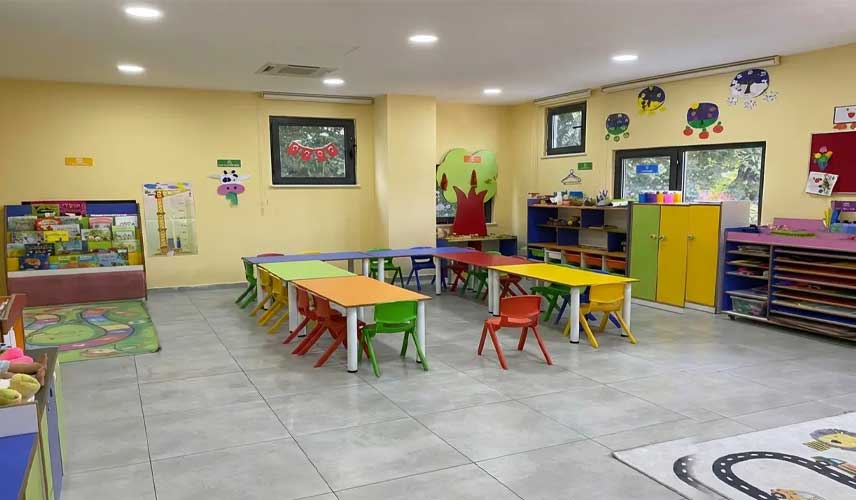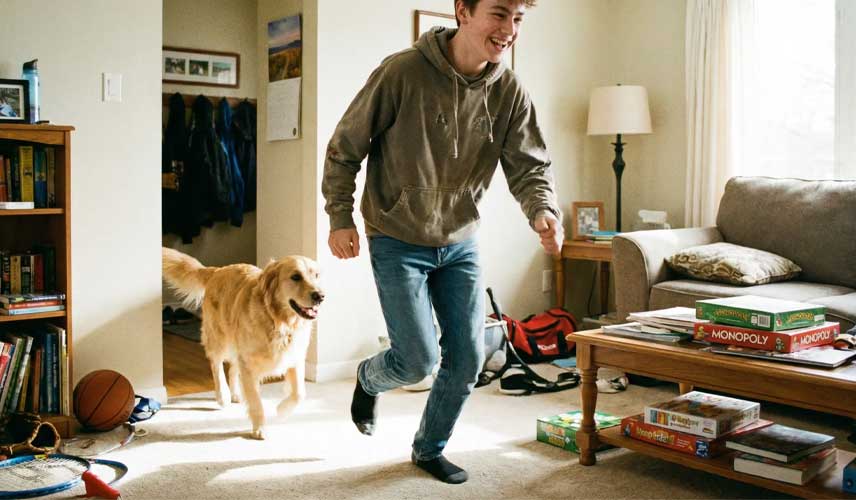
"My Child Doesn't Listen" 7 Solutions

A disobedient child is a common problem for many families. Parents struggle to decide how to deal with their children who do not listen, causing issues with coming to dinner, starting homework, going to sleep, cleaning their room, or helping with household chores. If you are a parent who complains that "My child does not listen", the solutions we suggest below may be helpful.
1. Your goal should not be to make your child listen or to show your authority; children who sense this will tend to rebel against adults. Think not "It must be my way", but rather "My child should learn and apply what is right in this situation". Instead of trying to control them, focus on communicating with them and understanding their feelings. Children cannot get along with adults who are only interested in asserting their authority and making them do whatever they say. They will react negatively to an adult who constantly gives advice or issues commands in a tone that reflects a desire to dominate, perceiving the situation as a power struggle and choosing to disobey in order to win. For a child to listen to an adult without causing problems, they need to feel loved and respected, and they must want to please you. You cannot instill love and respect through such behaviors.
2. Talking to the child to understand why they are not listening can be effective. When they do not want to do their homework or come to dinner, ask them why. Practice empathy; imagine being a child and think about whether you would want to stop playing a fun game with your friends to come to dinner. When your child objects to something you want, try to see the situation from their perspective. Of course, they need to eat, but you can consider a different arrangement. For example, you might tell them they can play for one more hour and eat dinner later today, but that you will not allow this to happen every day. If you think they have played enough, you can pull them away from the game, but if you find their reasoning valid, perhaps you can give a small concession? Or instead of calling them right at dinner time, you could tell them they need to stop playing 15 minutes before or after dinner.
3. If a child is not happy with the treatment they receive from their parents, they will exhibit more negative reactions. Review the environment at home and your behavior towards your child. There may be situations that you need to change.
4. Explain to your child in a gentle, short, and clear manner why they need to do what you say. Many issues between parents and children stem from a lack of communication. Make an effort to enter your child's world and understand them. Use language that is appropriate for their level when explaining your wishes and reasons. Always try to maintain your calm. Yelling, getting angry, or threatening may ensure that your words are heard, but this is only a temporary solution and does not eliminate the problem of the child not listening. Additionally, if you remain calm, you will inspire more respect in them.
5. In child education, both excessive discipline and leaving the child too free and uncontrolled are wrong. Apply a measured discipline, do not constantly bombard your child with instructions, and do not overwhelm them with rules. Ask for their opinion on matters that concern them and consider their reasonable suggestions.
6. Be firm about the things you want to be done. You should have a certain stance and limits on every issue, and your child should know their boundaries. Parents' indecisive and wavering behaviors give children opportunities to get their own way. As parents, try to act in the same direction at least on important matters.
7. Adjust your reactions according to the situation. A behavior that a mother would not like, such as a child playing a game in the bathroom and making a mess while the mother is busy with something else, is not necessarily intended to upset or anger the mother or to dirty the bathroom that she just cleaned. The child may simply enjoy playing with water, seeking answers to their curiosity, or conducting an experiment. We are not saying to let them play wherever and however they want all the time. But if they enjoy water, you could prepare an environment where they can play with water, for example. When such a situation arises, try not to get angry and shout. It may be difficult, but strive for it. Explain that what they did has created extra work for you, that you are genuinely tired, that you are upset to see the bathroom like this, and that you are worried about them getting sick, and ask, "What do you think we should do?" Encourage them to perceive the problem and try to find a solution rather than putting them on the defensive by blaming them.
Child Development and Education Other Content in the Category

Child Development and Education
Ways to Develop Fine and Gross Motor Skills in Children

Child Development and Education
First Day at Kindergarten: 12 Tips to Ease the Transition

Child Development and Education
6 Tips for Success

Child Development and Education
8 Reasons for Attention Difficulties in Children

Child Development and Education
Problems Related to Homework and Solutions

Child Development and Education
15 Life Skills Your Teen Should Acquire

Child Development and Education
35 Positive Messages Your Child Needs to Hear

Child Development and Education
10 Characteristics of Good Enough Parents

Child Development and Education
Child Development: The First 5 Years

Child Development and Education
7 Things You Need to Do to Raise a Well-Rounded Child

Child Development and Education
14 Effective Methods to Improve Children's School Success

Child Development and Education
8 Tips for Positive Parenting

Child Development and Education
10 Ways to Communicate Well with Children

Child Development and Education
How Does Changing Schools Affect Children?

Child Development and Education
